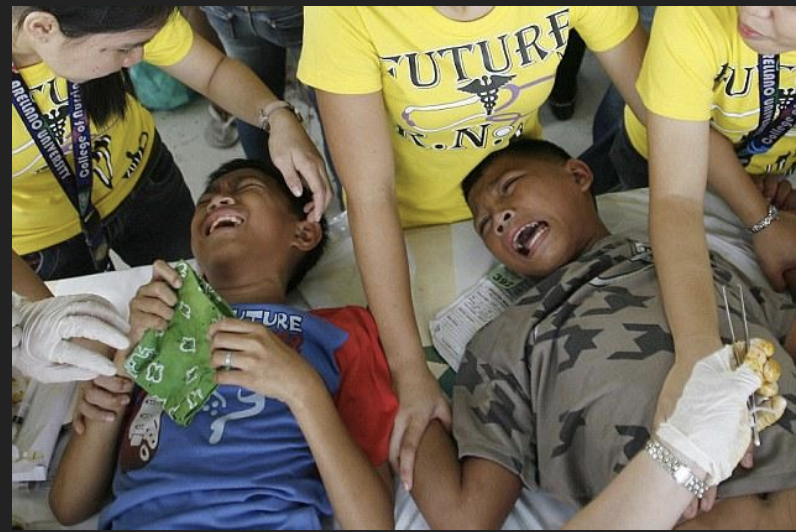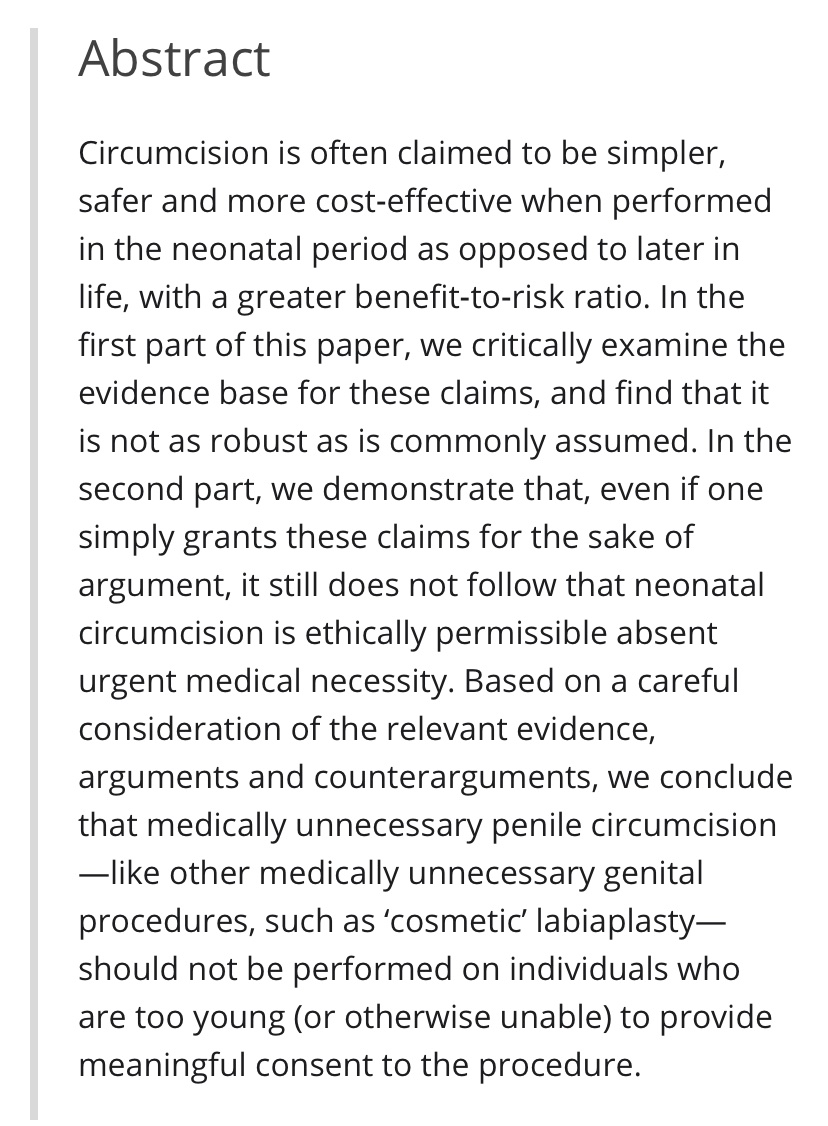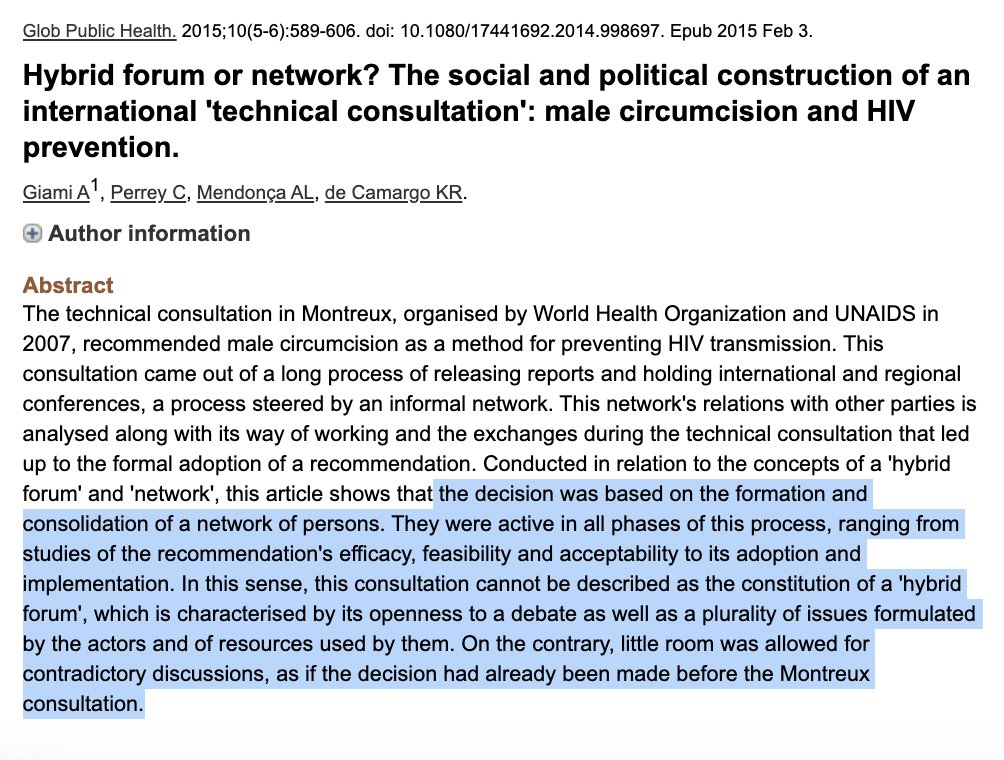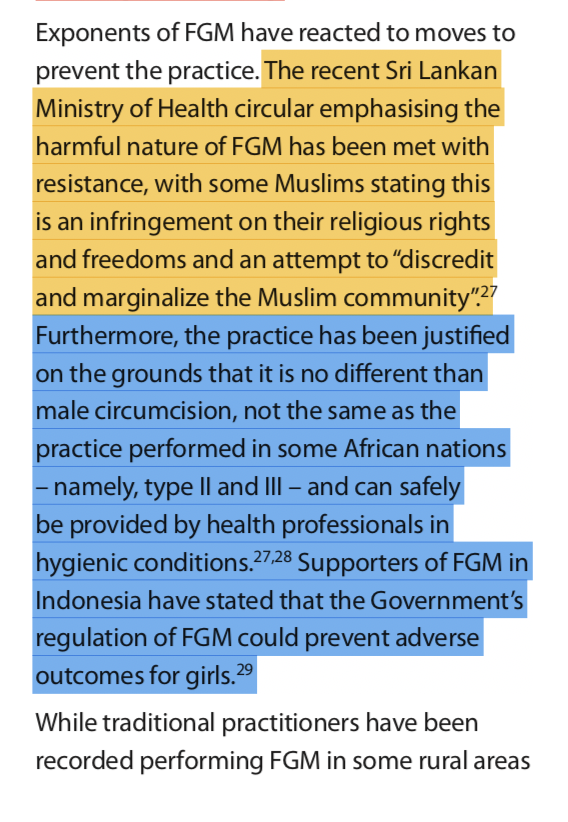
There is a lot of work on this; much of it is cited in this review article by Sara Johnsdotter and myself nature.com/articles/s4144… … I’ll add refs to individual papers by (eg) post colonial and African studies scholars below
https://twitter.com/rogue_feminist/status/1410628799281172481
(When I’m back at my computer :)
One example passage nature.com/articles/s4144… 

See also this table (partial view in screenshot) nature.com/articles/s4144… 
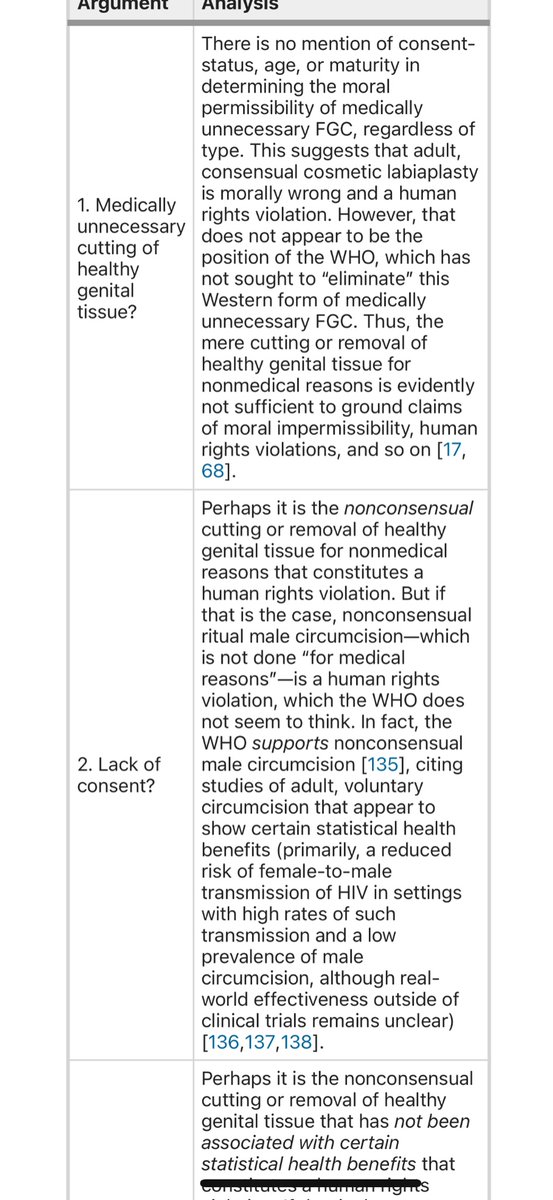
• • •
Missing some Tweet in this thread? You can try to
force a refresh





